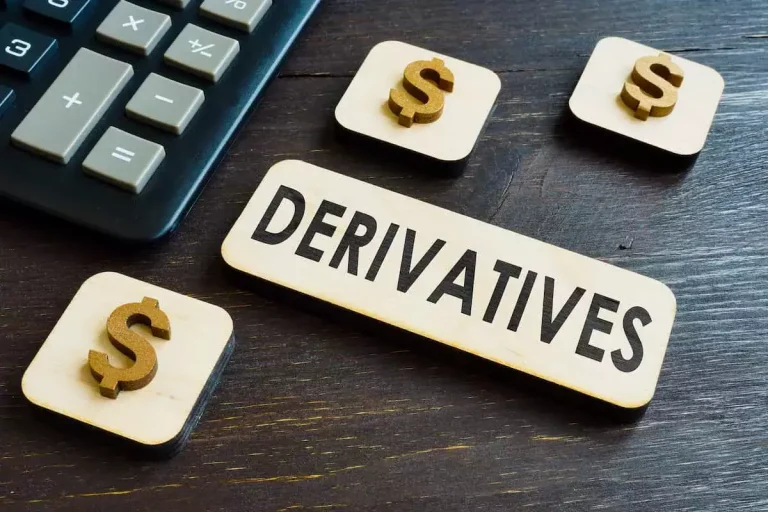Security vs Commodity: How Do They Compare?
Content
Corn, wheat, rice, coffee, cocoa, soybeans, sugar, and cotton are all examples of agricultural commodities. Under this category, grains can turn volatile during summer or winter transitions. Population growth combined with a dwindling or limited supply of agricultural products is an opportunity to profit from this commodity. Examples of energy commodities are crude oil, natural gas, heating oil, and gasoline. Historically, reduced global output from established oil wells Yield Farming has fueled rising oil prices driven by demand.
Advantages of Investing in Commodities
- This last criterion measures how much the success of the investment depends on the effort of other individuals apart from the investor.
- When the commission was established in 1974, agricultural products dominated futures trading.
- The principal way in which issuers seek to avoid violating securities law is through decentralization.
- The physical nature of commodities provides a buffer against financial system risks, offering relative stability when compared to equity securities.
- These securities markets are also important for the market as a whole, in that they allow companies to raise capital from the public.
- Compliance burdens, technology adaptation, and global reach further complicate oversight.
Securities come under the purview of the Securities and Exchange Commission (SEC), while commodities are regulated by the Commodity Futures Trading Commission (CFTC). Classifying an asset as a security or a commodity can have significant implications, particularly securities vs commodities in emerging asset classes like cryptocurrencies. At its core, a commodity is a raw material or a primary agricultural product that can be bought, sold, and traded.
Is gold considered a commodity?
Securities that give investors partial ownership of a company have a higher level of risk than corporate debt. Stocks give you partial ownership of a company and rise or fall based on a company’s financial performance. Bonds do https://www.xcritical.com/ not give you partial ownership of a company, but you receive interest payments until the bond matures. Choosing between investing in commodities or securities largely depends on your investment goals, risk tolerance, and investment knowledge. You should also consider the tax implications of your investments, as these can vary depending on your country of residence.

Among stocks and commodities, which are considered riskier?
The INX Digital Company inc. is an expert in the field of finance, crypto and digital securities. There is no one-size-fits-all answer for cryptocurrencies since there are several types of tokens; depending on the nature of the blockchain and token, they may or may not pass the Howey Test. For example, investing in a token because you expect an upward price movement to increase qualifies as an expectation of profits.
What are commodities and securities?
SoFi does not guarantee or endorse the products, information or recommendations provided in any third party website. In the U.S., the Securities and Exchange Commission (SEC) regulates the buying and selling of instruments that meet the criteria to be classified as securities. Self-regulatory organizations (SROs) such as the National Association of Securities Dealers (NASD) and the Financial Industry Regulatory Authority (FINRA) also play a role in regulating securities. A commodity is a basic good that can be interchanged with other goods of the same type, often a raw material used in producing other goods or services. Meanwhile, a security describes a tradable financial instrument with monetary value. Commodities refer to basic goods used in commerce that are interchangeable with others of the same type.
This includes stocks, bonds, funds, options and, more recently, cryptocurrencies. Securities represent ownership stakes that give holders rights to potential profits, governance votes, risk sharing and revenue tied to an underlying company or entity. The stock market or equity market is the marketplace where buying and selling of equities, derivatives, exchange-traded funds, mutual funds, and other assets occurs. This means that price movements of securities can change anytime depending on factors such as supply and demand, inflation, interest rates, geo-political factors, etc. The Howey Test, stemming from SEC (the Securities and Exchange Commission) v. Howey Co. (1946), assesses whether transactions qualify as investment contracts under laws on Commodities and Securities markets.

Between the two, commodities are typically categorized as alternative investments to the traditional array of stocks, bonds, and cash many investors hold. Securities typically refer to stocks and bonds along with related products like mutual funds and exchange-traded funds (ETFs). However, the legal interpretation of what constitutes a financial security is quite broad. In the case of Howey vs. SEC in 1946, the Supreme Court determined that a contract involving the sale of agricultural land and services represented a security.
The Commodity Futures Trading Commission (CFTC) regulates the trading of derivatives in the U.S. When the commission was established in 1974, agricultural products dominated futures trading. Since then, the markets overseen by the CFTC have become more complex, with fintech and digital currencies underpinning more intricate commodities transactions. Securities such as stocks often provide income through dividends – a share of profits distributed to investors. Bonds, another form of securities, provide regular income in the form of interest payments.
There are a lot of interested parties and a lot of moving parts, so it’s hard to predict what the regulatory landscape will look like a year from now. If a cryptocurrency is a security, cryptocurrency issuers and exchanges must seek the necessary licenses from their securities regulators. This is usually pretty difficult to do, so the crypto industry spends a huge amount of effort trying to ensure that cryptocurrency sales and developments avoid securities laws. Now that we have gone through the basic principles of stock and commodity markets, we will briefly probe into the differences between the two.
They allow traders to speculate on price changes or hedge against price volatility. For example, cryptocurrencies like Bitcoin and Ethereum may be classified as commodities because they were designed to act as a store of value or because of their decentralized nature. On the other hand, token types like security tokens are classified as securities because they represent shares of projects or a company.
Securities denote ownership or debt, while commodities are tangible goods. Investors in securities typically use strategies like value investing, growth investing, or income investing. In commodities, strategies often revolve around price speculation or risk hedging. Diversification across both asset classes can balance risk and reward in a portfolio. The debate over whether cryptocurrencies should be classified as commodities like gold or securities like stocks has been ongoing for some time.
Informal electronic trading systems have become more common in recent years, and securities are now often traded “over-the-counter,” or directly among investors either online or over the phone. The term “security” refers to a multitude of different investments, such as stocks, bonds, investment contracts, notes, and derivatives. The prices of commodities are generally determined by demand and supply dynamics. At the same time, the prices of securities depend on a host of factors, including interest rates, investor sentiment, or the financial strength of the company issuing securities.

In the latter method, shares are traded on secondary markets and are not subject to public scrutiny. Both cases, however, involve the distribution of shares that dilute the stake of founders and confer ownership rights on investors. Publicly traded securities are listed on stock exchanges, where issuers can seek security listings and attract investors by ensuring a liquid and regulated market in which to trade.
The key difference between a commodity and a security is simply the nature of the assets bought and sold. Commodities are tangible goods or raw materials that can be traded or exchanged, while securities represent ownership or debt obligation in an entity like an organization. A commodity is a tangible product, often a raw material that can be used to make other products.








